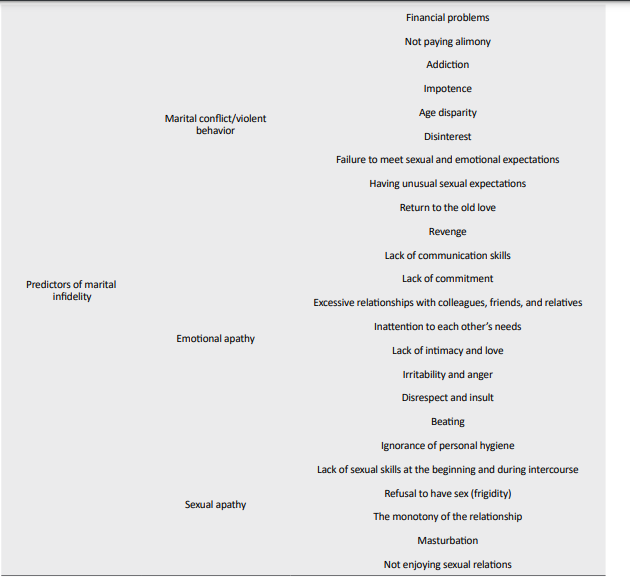Table of Contents
- Physical Comfort
- Health Considerations
- Emotional Well-being
- Respect and Consideration
- Daily Personal Hygiene
- Trimming and Grooming
- Regular Undergarment Changes
- Urinary Hygiene
- Safe Sex Practices
- Communication
- Regular Health Checkups
- Avoid Harsh Products
- Fostering Open Communication
- Normalize Discussions
- Be Respectful
- Listen Actively
- Offer Support
- Consent
Personal hygiene is an essential aspect of our daily lives, influencing our health, well-being and confidence. When it comes to intimate relationships, maintaining cleanliness takes on a new dimension. In this article, we will explore the importance of hygiene in personal relationships, offer tips for navigating intimate cleanliness and discuss how open communication can foster a healthy and comfortable environment.
Personal hygiene is a fundamental component of our daily routines, impacting not only our physical health but also our overall well-being and self-confidence. However, when it comes to intimate relationships, the significance of hygiene takes on a deeper dimension. In this article, we’ll delve into the multifaceted importance of hygiene in personal relationships and provide valuable insights on how to navigate the intricacies of intimate cleanliness. Additionally, we’ll emphasize the pivotal role that open and respectful communication plays in fostering a healthy, comfortable and harmonious environment within intimate relationships.
**1. Physical Health and Comfort: In the realm of personal relationships, physical intimacy is an essential element. Practicing good hygiene is not just a matter of courtesy; it directly affects the comfort and health of both partners. Maintaining cleanliness ensures that both individuals can fully enjoy the physical aspects of their relationship without discomfort or concerns.
**2. Emotional Well-being: Good personal hygiene can boost self-esteem and confidence, which are vital for healthy relationships. Feeling clean and fresh can lead to increased self-assuredness, allowing individuals to engage in their relationships with a positive self-image and a sense of desirability.
**3. Mutual Respect: Prioritizing hygiene in an intimate relationship is an expression of mutual respect. It demonstrates consideration for your partner’s comfort and well-being, reinforcing trust and a sense of care between partners.
**4. Preventing Discomfort and Infections: Maintaining intimate cleanliness helps prevent discomfort and reduce the risk of infections. Both partners benefit from practices that minimize the potential for irritations or health issues related to intimate contact.
**5. Communication is Key: Open, respectful communication is the linchpin of successful intimate relationships. Discussing hygiene preferences, concerns and expectations with your partner creates a safe space for mutual understanding. It allows both individuals to express their needs and boundaries openly, paving the way for a more satisfying and harmonious relationship.
**6. Mutual Responsibility: Hygiene in a personal relationship is a shared responsibility. Encourage each other to prioritize cleanliness, share tips and be understanding when discussing sensitive topics related to hygiene.
**7. Hygiene Education: Sometimes, individuals may lack knowledge about proper intimate hygiene practices. Encouraging gentle and informative discussions about hygiene can help both partners make more informed choices and maintain optimal cleanliness.
**8. Products and Practices: Explore and choose intimate hygiene products and practices that work best for both partners. Be open to trying new products or approaches if they align with your preferences and values.
**9. Routine Maintenance: Establishing a routine for personal hygiene, especially before and after intimate moments, can become a bonding experience for couples. It emphasizes mutual care and respect for each other’s well-being.
In conclusion, personal hygiene is a multifaceted aspect of intimate relationships, influencing not only physical comfort but also emotional well-being and mutual respect. By recognizing the importance of hygiene in personal relationships and fostering open communication on this topic, couples can create a more comfortable, satisfying and harmonious environment. Ultimately, prioritizing hygiene is an expression of care and consideration that enhances the overall quality of intimate relationships.
For a comprehensive look at this subject, we invite you to read more on this dedicated page: Role of female intimate hygiene in vulvovaginal health: Global …
Physical Comfort
Intimate cleanliness ensures physical comfort during intimate moments. Feeling fresh and clean can enhance the overall experience and intimacy between partners.
Intimate cleanliness is not just about physical comfort; it plays a significant role in nurturing emotional and relational well-being. Let’s delve deeper into why maintaining intimate hygiene is essential for enhancing not only physical comfort but also the overall experience and intimacy between partners:
1. Confidence and Comfort: When you feel fresh and clean during intimate moments, it boosts your confidence and comfort. Knowing that you are well-groomed and hygienic alleviates self-consciousness, allowing you to fully enjoy the experience without distractions or reservations.
2. Communication and Connection: Prioritizing intimate hygiene encourages open communication between partners. Discussing preferences, boundaries and hygiene practices fosters a deeper emotional connection and mutual understanding. It strengthens the trust and intimacy in the relationship.
3. Respect and Consideration: Maintaining intimate hygiene demonstrates respect and consideration for your partner. It shows that you value their comfort and well-being, which can lead to a more harmonious and fulfilling intimate relationship.
4. Reduced Discomfort: Poor intimate hygiene can lead to discomfort, irritation or even infections. These physical issues can disrupt intimacy and lead to dissatisfaction. By practicing good hygiene, you reduce the risk of these problems, allowing for a more enjoyable and pain-free experience.
5. Emotional Connection: Intimacy isn’t just physical; it’s also emotional. Feeling fresh and clean enhances the emotional connection between partners. It creates a positive and inviting atmosphere, fostering a sense of closeness and mutual attraction.
6. Self-Care and Wellness: Prioritizing intimate hygiene is an aspect of self-care and overall wellness. It’s about taking care of your body and its needs, which can lead to improved self-esteem and a healthier outlook on relationships and life in general.
7. Relationship Satisfaction: Studies have shown that couples who prioritize hygiene and self-care in their intimate lives tend to report higher levels of relationship satisfaction. Feeling desired and valued in an intimate relationship is essential for long-term happiness.
8. Long-Term Benefits: Establishing good intimate hygiene practices early in a relationship sets a positive precedent. It encourages ongoing mutual care and consideration, which can contribute to a lasting and fulfilling partnership.
In conclusion, intimate cleanliness extends far beyond physical comfort. It is a holistic approach to nurturing emotional and relational well-being. By prioritizing intimate hygiene, partners can enjoy enhanced confidence, open communication, mutual respect and a deeper emotional connection. These elements collectively contribute to a more satisfying and fulfilling intimate relationship that stands the test of time.
Should you desire more in-depth information, it’s available for your perusal on this page: Assisting Patients With Personal Hygiene – StatPearls – NCBI …

Health Considerations
Good intimate hygiene is essential for preventing infections and other health issues. Neglecting cleanliness can lead to urinary tract infections, yeast infections and other uncomfortable conditions.
Prioritizing good intimate hygiene is a fundamental aspect of overall health and well-being, specifically tailored to the sensitive and intimate areas of the body. Neglecting cleanliness in these regions can have far-reaching consequences, often resulting in uncomfortable and sometimes serious health issues. Let’s delve deeper into the importance of intimate hygiene and explore how it can safeguard your health:
**1. Preventing Urinary Tract Infections (UTIs): UTIs are a common and painful occurrence, particularly in women. Proper intimate hygiene can help prevent UTIs by reducing the risk of bacteria entering the urethra. This includes wiping from front to back after using the toilet to avoid transferring bacteria from the anal area to the urinary tract.
**2. Yeast Infections: Yeast infections, caused by an overgrowth of Candida fungus, can lead to itching, burning and discomfort. Maintaining clean and dry intimate areas can help prevent yeast infections by creating an environment less conducive to fungal growth.
**3. Bacterial Vaginosis (BV): BV is an imbalance of the natural bacteria in the vagina, resulting in symptoms like unusual discharge and odor. While the exact cause of BV is not always clear, practicing good intimate hygiene can contribute to a balanced vaginal environment and potentially reduce the risk of BV.
**4. Personal Comfort: Good intimate hygiene isn’t just about preventing infections; it’s also about personal comfort and confidence. Feeling clean and fresh in intimate areas can boost self-esteem and contribute to overall well-being.
**5. Gentle Cleansing: Avoid harsh soaps, douches and fragrances in intimate hygiene products. These can disrupt the delicate balance of the vaginal ecosystem and lead to irritation or infection. Instead, opt for mild, fragrance-free cleansers specifically formulated for intimate use.
**6. Proper Underwear: Choose breathable, cotton underwear to allow air circulation and moisture absorption. Avoid tight-fitting or synthetic materials that can trap heat and moisture, creating an environment conducive to bacterial or fungal growth.
**7. Stay Hydrated: Proper hydration is essential for maintaining healthy mucous membranes in intimate areas. Drinking enough water helps prevent dryness and irritation.
**8. Safe Intimacy: Practice safe sexual habits, including using protection during sexual activity and maintaining good hygiene afterward. This helps reduce the risk of sexually transmitted infections (STIs) and maintains overall genital health.
**9. Regular Check-Ups: Schedule regular gynecological check-ups and screenings with a healthcare provider. These appointments can help identify and address any intimate health concerns early.
**10. Listen to Your Body: Pay attention to any unusual symptoms or discomfort in your intimate areas. If you experience persistent itching, burning, unusual discharge or foul odors, consult a healthcare provider for evaluation and treatment.
Remember that intimate hygiene is a personal matter and what works best may vary from person to person. It’s essential to be gentle with your body and avoid over-cleansing or using harsh products. Good intimate hygiene is a matter of balance – maintaining cleanliness while respecting the natural balance of your body’s intimate ecosystem. By doing so, you can enjoy better health, comfort and self-confidence in this crucial aspect of your well-being.
To expand your knowledge on this subject, make sure to read on at this location: Personal hygiene – Better Health Channel
Emotional Well-being
Personal hygiene can significantly impact self-esteem and confidence. Feeling clean and well-groomed can boost self-assurance, leading to more satisfying intimate experiences.
Personal hygiene, often underestimated, wields a remarkable influence on self-esteem and confidence. It’s a gateway to feeling good about oneself, both physically and emotionally. When you take the time to care for your personal hygiene and maintain a clean, well-groomed appearance, the positive effects ripple through various aspects of your life, including your intimate experiences.
Boosting Self-Assurance: Good personal hygiene fosters a sense of self-assurance that goes beyond physical appearance. When you feel clean and fresh, you exude confidence in your interactions with others. This newfound confidence extends to intimate moments, creating a more relaxed and enjoyable experience.
Enhancing Physical Attraction: A well-groomed appearance can be an attractive quality for a partner. When you take pride in your personal hygiene, it communicates your commitment to maintaining your well-being and, by extension, your investment in the relationship. This can enhance physical attraction and contribute to a more fulfilling intimate connection.
Reducing Self-Consciousness: Poor personal hygiene can lead to self-consciousness and insecurity, which can be inhibiting during intimate moments. On the contrary, feeling clean and groomed allows you to fully engage in the experience without the distraction of worries about odor or cleanliness.
Improved Intimacy: Personal hygiene not only affects your physical presence but also your mental state. When you are comfortable with your cleanliness and grooming, you’re more likely to be mentally present during intimate encounters, leading to a deeper connection with your partner and increased satisfaction.
Relationship Satisfaction: Maintaining good personal hygiene can contribute to a positive feedback loop in your relationship. When both partners prioritize cleanliness and grooming, it creates a mutually respectful and comfortable atmosphere, which can lead to more satisfying intimate experiences and overall relationship satisfaction.
In conclusion, personal hygiene is a cornerstone of self-esteem and confidence and it has a direct impact on intimate encounters. By taking care of your physical well-being, you not only boost your self-assurance but also create an environment conducive to more satisfying and fulfilling intimate moments. Prioritizing personal hygiene is an investment in both your individual and relational well-being, fostering a deeper connection and greater satisfaction in your intimate experiences.
To expand your knowledge on this subject, make sure to read on at this location: Using social and behavioural science to support COVID-19 …

Respect and Consideration
Demonstrating good hygiene in a relationship is a sign of respect and consideration for your partner. It shows that you value their comfort and well-being.
In any relationship, whether it’s a romantic partnership, friendship or familial bond, demonstrating good hygiene is not just a matter of personal upkeep; it’s a powerful expression of respect and consideration for your loved ones. Here’s an extended perspective on why hygiene in a relationship goes beyond mere cleanliness and plays a crucial role in building and maintaining strong connections:
1. Mutual Comfort: Good hygiene ensures that both you and your partner feel comfortable in each other’s presence. Knowing that your partner takes care of their personal hygiene can put you at ease, fostering a relaxed and harmonious atmosphere within the relationship.
2. Communication Without Words: Actions often speak louder than words. Practicing good hygiene is a silent yet eloquent way to convey your care and regard for your partner’s comfort. It’s a non-verbal expression of love and consideration that transcends language barriers.
3. Physical Intimacy: In romantic relationships, physical intimacy is a significant aspect of connection. Maintaining personal hygiene is not just a courtesy; it’s an essential component of physical closeness. Feeling clean and refreshed enhances the overall experience for both partners.
4. Health Considerations: Personal hygiene is not only about smelling and looking clean; it also has health implications. Regularly washing your hands, for instance, reduces the risk of spreading germs and illnesses. By practicing good hygiene, you contribute to a healthier environment for your partner.
5. Emotional Well-Being: Feeling clean and well-groomed can have a positive impact on your self-esteem and overall mood. When you feel good about yourself, it positively influences your interactions with your partner. Your emotional well-being directly affects the quality of the relationship.
6. Encouraging Mutual Care: When one partner prioritizes good hygiene, it often sets a positive example that encourages the other to do the same. This mutual care and consideration create a cycle of respect and thoughtfulness within the relationship.
7. Respect for Personal Space: Respecting personal space is vital in any relationship. Demonstrating good hygiene reflects your understanding of your partner’s boundaries and their need for personal comfort. It’s a way of saying, “I respect your space and want you to feel at ease.”
8. Long-Term Relationship Satisfaction: Over time, personal hygiene can play a significant role in the long-term satisfaction of a relationship. It contributes to a sense of ongoing care and appreciation that keeps the connection strong.
9. Self-Care as a Team: Practicing good hygiene together can become a shared aspect of self-care within the relationship. It’s an opportunity to bond, whether it’s through preparing a relaxing bath for your partner, sharing skincare routines or simply taking care of each other during times of illness.
In conclusion, good hygiene in a relationship is a multifaceted expression of respect and consideration. It communicates that you value your partner’s comfort, well-being and happiness. Beyond the surface-level cleanliness, it contributes to a deeper sense of trust, connection and mutual care, enhancing the overall quality and longevity of the relationship.
To expand your knowledge on this subject, make sure to read on at this location: Cleanliness in context: reconciling hygiene with a modern microbial …

Daily Personal Hygiene
Make daily personal hygiene a routine. This includes regular showers, washing your genital area with mild, unscented soap and thoroughly drying the area afterward.
Incorporating daily personal hygiene into your routine is more than just a matter of cleanliness; it’s a fundamental practice for maintaining overall health and well-being. Expanding on this idea, let’s explore why making these habits a part of your daily life is so important:
Prevention of Infections: Regularly showering and washing the genital area with mild, unscented soap is a highly effective way to prevent infections. Bacteria and fungi thrive in warm, moist environments, making the genital area susceptible to issues like yeast infections or bacterial vaginosis. Maintaining cleanliness helps create an inhospitable environment for these microorganisms.
Odor Control: Adequate personal hygiene is essential for controlling body odor. The genital area, like other regions of the body, can develop an unpleasant odor when sweat combines with bacteria on the skin. By cleaning and drying the area, you can significantly reduce the risk of odor.
Comfort and Confidence: Feeling clean and fresh contributes to overall comfort and confidence. It helps you move through your day with ease, free from the discomfort of sweat or odor-related concerns.
Prevention of Skin Irritation: Proper hygiene practices reduce the risk of skin irritation and chafing in the genital area. These discomforts can be especially problematic in areas with friction, such as the thighs or undergarments.
Positive Self-Image: Maintaining personal hygiene is an act of self-care that reflects a positive self-image. It communicates self-respect and contributes to higher self-esteem and mental well-being.
Intimate Health: For individuals with vaginas, maintaining hygiene in the genital area is essential for intimate health. It helps prevent issues like urinary tract infections (UTIs) and supports overall reproductive health.
Relationships: Good personal hygiene is crucial in intimate relationships. Feeling clean and fresh enhances confidence and fosters more comfortable and enjoyable intimate moments.
To make these hygiene practices a part of your daily routine:
Set a Schedule: Establish a regular schedule for showering and genital hygiene, whether it’s in the morning, evening or both, based on your preferences and daily activities.
Choose the Right Products: Use mild, unscented soap and warm water to wash the genital area. Avoid harsh or scented products that can disrupt the natural pH balance.
Thorough Drying: After washing, ensure that the genital area is thoroughly dried with a clean towel. Moisture can promote the growth of microorganisms, so keeping the area dry is vital.
Regular Check-Ins: Pay attention to your body and any changes in odor, discharge or discomfort. If you notice anything unusual, consult a healthcare professional for guidance.
By making these simple yet crucial hygiene practices a part of your daily routine, you not only maintain cleanliness but also contribute to your overall health, comfort and confidence. It’s a small but impactful investment in your well-being that pays dividends in your daily life and relationships.
To delve further into this matter, we encourage you to check out the additional resources provided here: Personal hygiene for pre-teens & teens | Raising Children Network

Trimming and Grooming
If desired, consider trimming or grooming pubic hair. Use caution and the right tools to avoid skin irritation or ingrown hairs.
Personal grooming habits extend to various aspects of self-care, including the sensitive issue of pubic hair maintenance. While personal preferences vary widely, some individuals choose to trim or groom their pubic hair for aesthetic, comfort or hygiene reasons. However, if you decide to embark on this grooming journey, it’s crucial to do so with caution, the right tools and proper knowledge to avoid potential skin irritation or ingrown hairs.
First and foremost, when it comes to pubic hair grooming, patience is a virtue. Rushing through the process increases the risk of nicks, cuts and skin irritation. Before you start, make sure you have the right tools on hand, such as sharp, clean scissors or an electric trimmer specifically designed for this purpose. Blunt or rusty tools can increase the likelihood of skin irritation and discomfort.
Additionally, maintaining proper hygiene throughout the process is vital. Start by thoroughly cleansing the area with mild, unscented soap and warm water. This helps remove bacteria and prevents infection. It’s also a good idea to exfoliate gently beforehand to prevent ingrown hairs.
When trimming or grooming, take your time and use gentle, controlled motions. Avoid tugging or pulling on the hair, as this can lead to irritation or ingrown hairs. If you’re using an electric trimmer, ensure it’s clean and well-maintained and always follow the manufacturer’s instructions.
After grooming, continue with good hygiene practices. Rinse the area with cool water to soothe the skin and remove any loose hairs. Pat dry with a clean, soft towel, avoiding any harsh rubbing. Applying a fragrance-free, alcohol-free moisturizer can help keep the skin hydrated and reduce the risk of irritation.
It’s essential to listen to your body during and after grooming. If you notice any redness, itching or discomfort, take a break from grooming until your skin has fully healed. In some cases, it may be best to consult a dermatologist for guidance, especially if you encounter persistent issues like ingrown hairs.
Remember that personal grooming choices are entirely individual and there’s no one-size-fits-all approach. What matters most is your comfort, confidence and well-being. Whether you prefer a clean-shaven look, a neatly trimmed style or embracing your natural state, maintaining good hygiene and practicing grooming with care are key to a comfortable and healthy experience.
Looking for more insights? You’ll find them right here in our extended coverage: Personal Hygiene | CDC

Regular Undergarment Changes
Change your underwear daily and choose breathable, cotton undergarments to promote air circulation and minimize moisture.
Ensuring good hygiene and comfort in your daily routine involves more than just regular bathing; it extends to your choice of underwear and how you care for this essential clothing item. Here’s an extended perspective on why changing your underwear daily and opting for breathable, cotton undergarments is a beneficial practice:
1. Odor Prevention: Changing your underwear daily is a practical strategy to prevent unpleasant odors. Throughout the day, sweat, bacteria and skin cells accumulate in your undergarments, creating an environment conducive to odor development. Regular changes help maintain a fresh and pleasant scent.
2. Hygiene and Cleanliness: Frequent underwear changes are a fundamental aspect of personal hygiene. They help keep the genital area clean and free from bacteria and germs that can lead to discomfort or infections. Clean undergarments contribute to an overall sense of cleanliness.
3. Moisture Management: Cotton underwear, known for its breathability and moisture-wicking properties, is an excellent choice for maintaining comfort. Cotton absorbs moisture, keeping the skin dry and reducing the risk of irritation or chafing. This is particularly important in hot or humid climates.
4. Air Circulation: Breathable underwear, such as cotton, promotes air circulation around the genital area. Proper airflow helps regulate temperature and prevents excess moisture buildup, reducing the risk of fungal infections or skin irritation.
5. Skin Sensitivity: Choosing underwear made of natural, hypoallergenic materials like cotton is beneficial for individuals with sensitive skin. Synthetic fabrics may cause skin irritation or allergies, while cotton is less likely to provoke such reactions.
6. Reducing Bacterial Growth: Frequent changes and breathable materials discourage the growth of harmful bacteria. A clean, dry environment minimizes the risk of bacterial overgrowth, which can lead to discomfort and infections.
7. Comfort and Freedom of Movement: Breathable, cotton underwear offers a comfortable and lightweight option that allows for freedom of movement. This is particularly important during physical activities, as it reduces friction and enhances overall comfort.
8. Preventing Skin Issues: By wearing clean, breathable underwear, you reduce the likelihood of developing skin issues such as rashes, folliculitis or intertrigo. These conditions can be uncomfortable and may require medical attention.
9. Confidence and Well-Being: Wearing fresh, comfortable underwear can boost your confidence and overall sense of well-being. You feel more at ease, knowing that you’re maintaining good personal hygiene and prioritizing your comfort.
In summary, changing your underwear daily and selecting breathable, cotton undergarments are practices that go beyond mere comfort; they are integral to personal hygiene and overall well-being. These habits help prevent odor, maintain cleanliness, manage moisture and reduce the risk of skin issues. By paying attention to your choice of underwear and practicing regular changes, you contribute to your own comfort, confidence and overall health in your daily life.
To expand your knowledge on this subject, make sure to read on at this location: Personal hygiene – Better Health Channel

Urinary Hygiene
After using the restroom, always wipe from front to back to prevent the spread of bacteria. Urinate before and after sexual activity to help prevent urinary tract infections.
Maintaining proper hygiene practices, especially after using the restroom and engaging in sexual activity, is essential for preventing bacterial infections and ensuring overall health and comfort. Here’s an extended explanation of these hygiene tips:
1. Front-to-Back Wiping: After using the restroom, always remember to wipe from front to back. This simple yet crucial practice helps prevent the transfer of bacteria from the anal area to the genital area. Doing so reduces the risk of urinary tract infections (UTIs) and other bacterial infections in the genital and urinary regions.
2. UTI Prevention: UTIs can be painful and uncomfortable. One effective way to reduce the likelihood of UTIs is to urinate before and after sexual activity. Here’s why it works:
Pre-Sexual Activity: Emptying your bladder before sexual activity can help flush out any bacteria that might be present in the urinary tract. This reduces the chances of introducing additional bacteria during intercourse.
Post-Sexual Activity: After sex, it’s essential to urinate again. This helps expel any bacteria that may have entered the urethra during sexual contact. Urinating promptly can flush out these potentially harmful microorganisms before they have a chance to multiply and cause an infection.
3. Hydration: Staying well-hydrated is also essential for urinary health. Drinking an adequate amount of water ensures that your urinary system functions optimally. It helps dilute urine, making it less concentrated and reducing the risk of crystallization and stone formation.
4. Regular Check-Ups: In addition to good hygiene practices, regular check-ups with a healthcare provider are crucial for monitoring your urinary and reproductive health. Regular screenings and discussions with your healthcare professional can help identify and address any potential issues early, ensuring prompt treatment if needed.
5. Communication: Open communication with sexual partners is key to maintaining sexual health and preventing infections. Discussing sexual health, practices and concerns with your partner can help you both make informed choices and reduce the risk of infections.
6. Personalized Care: It’s important to remember that individual health needs can vary. Some individuals may be more prone to UTIs or other infections due to factors like their anatomy, medical history or underlying conditions. In such cases, working closely with a healthcare provider can help develop a personalized hygiene and prevention plan.
By following these hygiene practices and staying informed about your own health, you can reduce the risk of urinary tract infections and maintain overall well-being. Good hygiene and proactive health measures not only prevent discomfort but also promote a healthy and fulfilling life.
Don’t stop here; you can continue your exploration by following this link for more details: Assisting Patients With Personal Hygiene – StatPearls – NCBI …

Safe Sex Practices
Condoms and other forms of protection are not only important for preventing pregnancy and sexually transmitted infections but can also help maintain cleanliness during sexual activity.
The use of protection during sexual activity is not only a matter of sexual health but also contributes significantly to overall cleanliness and well-being. Let’s delve deeper into why condoms and other protective measures play a crucial role in maintaining hygiene and health during sexual encounters:
Preventing Infections: Condoms are highly effective at preventing the transmission of sexually transmitted infections (STIs). Using condoms reduces the risk of contracting or spreading infections such as HIV, chlamydia, gonorrhea and syphilis. By maintaining sexual health, you contribute to overall well-being and minimize the risk of infections that can impact your physical and emotional health.
Hygienic Barrier: Condoms act as a hygienic barrier between partners, preventing direct contact with bodily fluids. This barrier is not only protective in terms of STIs but also aids in maintaining cleanliness during sexual activity. It reduces the potential for fluid transfer and minimizes the need for extensive clean-up after intercourse.
Menstrual Hygiene: For individuals who menstruate, sexual activity can sometimes coincide with their menstrual cycle. Condoms can be used to maintain menstrual hygiene by preventing blood from coming into contact with partners. This can be particularly helpful in situations where immediate access to bathing or cleaning facilities is limited.
Ease of Cleanup: Condoms simplify the post-sex clean-up process. After intercourse, you can simply dispose of the condom, eliminating the need for extensive washing or laundering of sheets or clothing. This convenience contributes to a more relaxed and comfortable experience.
Sensitivity to Sensitivities: Some individuals may have allergies or sensitivities to certain substances found in bodily fluids, such as semen. Condoms provide a protective barrier, reducing the likelihood of skin reactions or discomfort that may arise from direct contact.
Easing Anxiety: Using protection can ease anxiety and concerns related to sexual health and hygiene. Knowing that you’re taking steps to protect yourself and your partner can lead to a more relaxed and enjoyable sexual experience.
Promoting Responsible Sexual Behavior: Encouraging the use of condoms and other forms of protection promotes responsible sexual behavior. It emphasizes the importance of sexual health, communication and consent, creating a safer and more respectful environment for all parties involved.
Dual Protection: Condoms offer dual protection by preventing both unwanted pregnancies and STIs. This comprehensive approach to sexual health ensures that you’re not only taking care of your reproductive well-being but also reducing the risk of infections that can affect your overall health.
Inclusivity: Condoms are accessible and suitable for various sexual orientations and gender identities. Their use is inclusive and adaptable to diverse relationships and preferences, promoting a more equitable and considerate approach to sexual hygiene.
Promoting Open Communication: Discussing protection and sexual health with your partner fosters open communication and trust within the relationship. This dialogue is not only essential for sexual hygiene but also for building healthy, fulfilling connections.
In summary, condoms and other protective measures are vital tools for maintaining cleanliness, promoting sexual health and preventing the spread of infections during sexual activity. By prioritizing protection, individuals contribute to their overall well-being, minimize health risks and create a more responsible and hygienic approach to sexual encounters.
Looking for more insights? You’ll find them right here in our extended coverage: Personal hygiene – Better Health Channel

Communication
Open and honest communication is key. Discuss intimate hygiene preferences with your partner to ensure both parties are comfortable and understand each other’s needs.
In any romantic relationship, open and honest communication forms the bedrock of understanding, trust and emotional intimacy. When it comes to discussing intimate hygiene preferences with your partner, this communication is not only essential but can also strengthen your connection on a deeper level.
Initiating a conversation about intimate hygiene may initially feel uncomfortable, but it’s a crucial aspect of a healthy and respectful partnership. By engaging in this dialogue, you and your partner have the opportunity to establish boundaries, express your needs and gain a deeper understanding of each other’s comfort zones.
One significant benefit of discussing intimate hygiene preferences is the potential to enhance physical and emotional comfort during intimate moments. Understanding each other’s likes and dislikes when it comes to personal grooming or cleanliness can lead to more satisfying and enjoyable experiences for both partners. It can also reduce anxiety or self-consciousness that may arise from uncertainty about your partner’s expectations.
Moreover, this level of communication fosters mutual respect and consideration. It demonstrates your willingness to prioritize each other’s comfort and well-being. It’s a way of saying, “I care about your feelings and am committed to creating a loving and considerate environment for our intimacy.”
It’s important to remember that these conversations should always occur in a non-judgmental and empathetic manner. Both partners should feel free to express their preferences without fear of criticism. Furthermore, keep in mind that hygiene is a personal and culturally influenced matter and what works for one person may not be the same for another. By acknowledging and respecting these differences, you can navigate these discussions with empathy and understanding.
In conclusion, open and honest communication about intimate hygiene preferences is a crucial component of a healthy and fulfilling romantic relationship. It allows you and your partner to establish mutual understanding, create a comfortable and respectful environment and ultimately enhance your physical and emotional connection. Embracing these conversations can lead to a more fulfilling and harmonious partnership built on trust and consideration.
For a comprehensive look at this subject, we invite you to read more on this dedicated page: Fear of dying dirty: Intimate care encounters during COVID-19 …

Regular Health Checkups
Schedule regular health checkups to address any potential issues promptly. If you or your partner notice unusual symptoms or discomfort, consult a healthcare professional.
Regular health checkups are a cornerstone of responsible self-care and can play a vital role in maintaining intimate cleanliness within a relationship. Here’s why scheduling and attending these checkups is crucial:
Preventative Care: Health checkups are not only about addressing existing issues but also about preventing potential problems. Many intimate health concerns can be detected early through regular screenings, allowing for timely intervention and treatment.
Peace of Mind: Knowing that you and your partner are in good health can provide peace of mind and alleviate any worries or anxieties about intimate hygiene and safety.
Professional Guidance: Healthcare professionals can provide valuable guidance on intimate health and hygiene. They can offer advice tailored to your specific needs, helping you make informed decisions about cleanliness practices.
Early Detection: Some intimate health conditions, such as sexually transmitted infections (STIs), may not present obvious symptoms at first. Regular checkups, including STI testing, can help detect these conditions early, reducing the risk of complications and transmission.
Support for Concerns: If you or your partner notice any unusual symptoms or discomfort, it’s crucial to consult a healthcare professional promptly. Ignoring symptoms can lead to worsened conditions or the spread of infections. Healthcare providers can diagnose the issue and recommend appropriate treatments or interventions.
Confidentiality and Privacy: Healthcare professionals are bound by confidentiality rules, ensuring that your intimate health concerns remain private. You can discuss any issues openly with your healthcare provider without fear of judgment or disclosure.
Customized Advice: Each individual’s health needs are unique and healthcare professionals can provide personalized advice on maintaining intimate hygiene, managing specific conditions or addressing concerns related to sexual health.
Long-Term Well-being: Investing in regular health checkups supports long-term well-being for both partners. It fosters a sense of responsibility and commitment to each other’s health and happiness.
In conclusion, scheduling and attending regular health checkups are essential components of maintaining intimate cleanliness and overall well-being within a relationship. These checkups offer not only early detection of health issues but also professional guidance, peace of mind and the opportunity to address concerns promptly. Prioritizing your health and that of your partner is a proactive step toward a healthy, fulfilling and satisfying relationship.
For additional details, consider exploring the related content available here Cultural Religious Competence in Clinical Practice – StatPearls …

Avoid Harsh Products
Avoid using harsh, scented or chemical-laden products in your intimate area, as they can disrupt the natural pH balance and lead to irritation.
Caring for your intimate area requires a gentle and mindful approach to maintain comfort and health. Expanding on this idea emphasizes the importance of avoiding harsh products, choosing suitable alternatives and understanding the delicate balance of the intimate region:
1. pH Balance Maintenance:
The intimate area has a delicate pH balance that helps protect against harmful bacteria and infections. Using harsh or chemically laden products can disrupt this balance, making it easier for infections to occur. Opt for gentle, pH-balanced products designed specifically for intimate care to support this natural defense mechanism.
2. Fragrance-Free Solutions:
Scented products may seem appealing, but they often contain artificial fragrances that can lead to irritation and allergic reactions in the intimate area. Fragrance-free alternatives are a safer choice. They eliminate the risk of discomfort and allow you to maintain your natural scent, which is a normal part of your body’s chemistry.
3. Mild Cleansers:
When cleansing the intimate area, choose a mild, hypoallergenic and soap-free cleanser designed for sensitive skin. These products are formulated to gently clean without causing irritation. Avoid using regular soap, as it can be too harsh and disrupt the pH balance.
4. Allergen Awareness:
Be mindful of potential allergens in intimate care products. Some individuals may be sensitive or allergic to certain ingredients, such as parabens or certain preservatives. Check product labels for known allergens and opt for hypoallergenic options if you have a history of skin sensitivities.
5. Avoid Douching:
Douching or the practice of using water or other fluids to cleanse the inside of the vagina, is not recommended by healthcare professionals. It can disrupt the natural balance of the vaginal flora and increase the risk of infections. The vagina is self-cleaning and using water alone for external cleansing is sufficient.
6. Post-Menstrual Care:
During menstruation, pay extra attention to hygiene. Change sanitary products regularly to prevent bacterial growth and odor. Choose products without fragrances or harsh chemicals and consider using menstrual cups or reusable cloth pads for an eco-friendly option.
7. Consult with a Healthcare Provider:
If you experience persistent itching, burning, unusual discharge or discomfort in your intimate area, consult with a healthcare provider. These symptoms could be signs of an infection or other underlying issue that requires professional attention.
8. Hydration and Diet:
Maintaining overall health can also impact the health of your intimate area. Staying hydrated and consuming a balanced diet rich in fruits and vegetables can support healthy skin and mucous membranes, including those in the intimate region.
In summary, prioritizing gentle, pH-balanced and fragrance-free products for intimate care is essential to avoid irritation and maintain the natural balance of the intimate area. By being mindful of your choices and understanding the unique needs of this sensitive region, you can promote comfort, hygiene and overall well-being. Remember that your body has its way of taking care of itself and supporting its natural processes is often the best approach to intimate care.
To delve further into this matter, we encourage you to check out the additional resources provided here: Role of female intimate hygiene in vulvovaginal health: Global …

Fostering Open Communication
Maintaining open communication is essential for addressing intimate cleanliness in a relationship:
Maintaining open communication is not only essential but also a foundation for a healthy and fulfilling intimate relationship, especially when it comes to addressing intimate cleanliness. Here’s an extended perspective on why communication plays a crucial role in this aspect of a relationship:
Fostering Trust and Comfort: Open communication fosters trust and comfort between partners. When you can openly discuss sensitive topics like intimate cleanliness, it creates a safe space where both individuals feel heard and respected. This trust is fundamental for a strong and lasting connection.
Understanding Each Other’s Needs: Everyone has unique preferences and needs when it comes to intimacy and personal hygiene. Through communication, you can gain a deeper understanding of each other’s expectations and desires. This understanding allows you to tailor your approach to ensure both partners are satisfied.
Resolving Concerns: Sometimes, concerns or issues related to intimate cleanliness may arise. By openly discussing these concerns, you can address them promptly and find mutually agreeable solutions. This proactive approach prevents small issues from escalating into more significant relationship challenges.
Enhancing Intimacy: Intimacy is not just a physical act but also an emotional connection. When you communicate openly about intimate cleanliness, you enhance your emotional intimacy. This connection can lead to a more fulfilling and enjoyable physical relationship.
Promoting Personal Hygiene: Effective communication can encourage both partners to prioritize personal hygiene. It can lead to a mutual commitment to cleanliness, ensuring that both individuals feel comfortable and confident during intimate moments.
Sharing Preferences: People have different preferences when it comes to cleanliness and grooming. Open communication allows you to share your preferences with each other. This can include discussing grooming routines, scents and other aspects that contribute to a positive experience.
Overcoming Taboos: In many cultures, discussing intimate matters can be considered taboo. However, breaking down these barriers through open communication is essential for a healthy relationship. It demonstrates that you are willing to tackle challenging topics together, which can strengthen your bond.
Preventing Misunderstandings: Misunderstandings related to intimate cleanliness can lead to discomfort or embarrassment. By communicating openly, you can prevent these misunderstandings and ensure that both partners are on the same page.
Adapting to Changes: Over time, personal hygiene routines and needs may change due to factors like age, health or lifestyle. Open communication allows you to adapt to these changes together, ensuring that your intimate life remains fulfilling and satisfying.
Supporting Sensitivity: Some individuals may have specific sensitivities or conditions that require special care. Discussing these sensitivities openly ensures that both partners are considerate and supportive, creating a compassionate and caring relationship.
In conclusion, maintaining open communication is not just essential for addressing intimate cleanliness in a relationship; it’s a cornerstone of a healthy and thriving partnership. Through communication, you build trust, understand each other’s needs and create an environment where both individuals feel valued and cared for. It’s a powerful tool for enhancing intimacy, preventing misunderstandings and nurturing a loving and fulfilling relationship.
You can also read more about this here: Using social and behavioural science to support COVID-19 …

Normalize Discussions
Make conversations about hygiene and intimate preferences a natural part of your relationship. Normalize the idea that discussing these topics is a sign of trust and intimacy.
Open and honest communication in a relationship is the cornerstone of understanding, trust and intimacy. Embracing conversations about hygiene and intimate preferences as a natural part of your connection can have profound benefits for both partners. Here’s how you can further extend and appreciate the significance of these discussions:
Trust and Vulnerability: When you openly discuss hygiene and intimate preferences, you create a safe space for vulnerability. Sharing your preferences and concerns fosters trust because it demonstrates that you’re comfortable being your true self with your partner. This vulnerability strengthens the emotional bond between you.
Mutual Understanding: Each person’s hygiene habits and intimate preferences can be unique. By talking about these aspects openly, you gain a deeper understanding of each other’s needs and desires. This understanding allows you to navigate intimate moments with greater sensitivity and consideration.
Respect and Consent: Open conversations about intimacy are essential for establishing boundaries and ensuring mutual consent. It’s crucial to respect your partner’s comfort levels and communicate your own. This paves the way for a more enjoyable and respectful intimate experience.
Problem-Solving: Sometimes, hygiene concerns or preferences may require solutions or compromises. Discussing these topics openly allows you to work together to find mutually satisfying solutions. This collaborative problem-solving strengthens your relationship.
Enhanced Intimacy: Embracing these conversations can lead to enhanced physical and emotional intimacy. When you both feel heard and understood, your connection deepens, creating a more fulfilling and passionate relationship.
Preventing Misunderstandings: Lack of communication about hygiene and intimate preferences can lead to misunderstandings or dissatisfaction. Open discussions help prevent misinterpretations and ensure that both partners are on the same page.
Personal Growth: As individuals, your preferences and comfort levels may evolve over time. Regular conversations about hygiene and intimacy allow you to grow together and adapt to these changes while maintaining a strong connection.
Health and Well-Being: Hygiene discussions also extend to health-related topics, such as sexual health and contraception. Openly addressing these matters ensures that both partners prioritize their well-being and make informed decisions.
Embracing Uniqueness: Every relationship is unique and so are the discussions within it. Embrace the idea that your conversations about hygiene and intimacy should reflect your relationship’s distinctive dynamics and values.
Fun and Playfulness: While these discussions can be serious, they can also be approached with a sense of playfulness and curiosity. This can add an element of excitement and anticipation to your relationship.
In summary, making conversations about hygiene and intimate preferences a natural part of your relationship is a powerful way to nurture trust, deepen intimacy and ensure that both partners’ needs are met. By normalizing these discussions, you create a foundation for a healthy, respectful and satisfying relationship that continues to grow and flourish over time.
For a comprehensive look at this subject, we invite you to read more on this dedicated page: A Provider’s Guide to Brief Cognitive Behavioral Therapy

Be Respectful
Approach the topic with sensitivity and respect. Be mindful of your partner’s feelings and comfort levels.
Approaching any topic with sensitivity and respect is not only essential for maintaining healthy communication but also for nurturing strong and positive relationships. When it comes to sensitive subjects or discussions with your partner, such as important decisions or emotional issues, here’s an extended perspective on why sensitivity and respect are crucial:
Emotional Safety: Sensitivity and respect create a safe emotional environment for both partners. When individuals feel heard and valued, they are more likely to open up and share their thoughts and feelings honestly. This emotional safety fosters trust and intimacy within the relationship.
Effective Communication: Approaching discussions with sensitivity and respect paves the way for effective communication. It allows both partners to express themselves without fear of judgment or criticism. Effective communication is key to resolving conflicts, making decisions and understanding each other better.
Avoiding Hurtful Words: Sensitivity helps you choose your words carefully, reducing the likelihood of saying something hurtful or damaging. Words have the power to uplift or harm and being mindful of this can prevent unnecessary emotional pain.
Acknowledging Feelings: Respect involves acknowledging your partner’s feelings, even if you don’t necessarily agree with them. It’s important to recognize that each person’s emotions are valid and showing respect means validating those emotions rather than dismissing them.
Empathy and Understanding: Sensitivity allows you to empathize with your partner’s perspective. Putting yourself in their shoes and understanding their point of view can lead to more compassionate and understanding interactions.
Conflict Resolution: When conflicts arise, sensitivity and respect are crucial for finding common ground and resolving issues amicably. Instead of escalating conflicts, these qualities help de-escalate tensions and promote compromise.
Maintaining Boundaries: Respect also extends to respecting your partner’s boundaries. It’s essential to recognize and honor your partner’s personal space, autonomy and choices. This fosters a sense of autonomy within the relationship.
Building Emotional Intimacy: Sensitivity and respect contribute to the development of emotional intimacy. Emotional intimacy is about connecting on a deep emotional level, which is vital for a healthy and fulfilling partnership.
Long-Term Relationship Satisfaction: Partners who consistently approach discussions with sensitivity and respect tend to report higher levels of relationship satisfaction. This leads to a more harmonious and enduring partnership.
Modeling Healthy Behavior: By demonstrating sensitivity and respect in your interactions with your partner, you model healthy communication and behavior. This sets a positive example for the relationship and any children in the family.
Strengthening Trust: Trust is the foundation of any healthy relationship. Sensitivity and respect are integral to building and maintaining trust between partners. Trust enables couples to rely on each other emotionally and rely on their partner’s support in times of need.
Conflict Prevention: Sensitivity and respect can also help prevent conflicts from arising in the first place. By addressing issues calmly and respectfully, many potential conflicts can be avoided or resolved before they escalate.
In summary, sensitivity and respect are cornerstones of healthy and thriving relationships. They create a nurturing and safe environment for open communication, emotional intimacy and conflict resolution. By embodying these qualities, couples can build stronger bonds, overcome challenges and cultivate a deeper understanding and appreciation for each other.
Should you desire more in-depth information, it’s available for your perusal on this page: Assisting Patients With Personal Hygiene – StatPearls – NCBI …

Listen Actively
Listen to your partner’s preferences and concerns attentively. Encourage them to express their needs and desires openly.
Listening to your partner’s preferences and concerns attentively is a cornerstone of building a strong and healthy relationship. However, it’s not just about passive listening; it’s also about creating an environment where open communication can thrive. Here’s an extended idea that delves deeper into this concept:
“Listening to your partner’s preferences and concerns attentively is like nurturing the roots of a healthy relationship. It’s the foundation upon which trust, understanding and intimacy are built. But it’s not enough to simply hear their words; you should actively encourage and empower them to express their needs and desires openly. This process of open and honest communication serves as the lifeblood of a thriving partnership.
When you attentively listen to your partner, you’re showing them that their thoughts and feelings matter to you. It’s an act of validation, respect and love. By truly hearing what they have to say, you create a safe space where they can comfortably share their deepest fears, wildest dreams and everything in between.
Encouraging them to express themselves openly, without judgment or fear of rejection, is equally crucial. This encouragement sends the message that their voice is not only valued but also essential to the growth of your relationship. When your partner feels free to communicate their needs, desires and concerns without reservation, it opens the door to mutual understanding and compromise.
Moreover, this practice helps both partners evolve and adapt together. It allows you to grow as individuals while still maintaining a strong connection. By understanding each other’s evolving preferences and addressing concerns as they arise, you can navigate the twists and turns of life’s journey as a united team.
In the end, listening and encouraging open expression isn’t just a relationship strategy; it’s a profound way of showing your commitment to your partner’s happiness and well-being. It’s about creating a partnership where both of you can thrive, individually and together, because you’ve laid the groundwork for a deep, enduring connection built on trust, love and unwavering support.”
If you’d like to dive deeper into this subject, there’s more to discover on this page: Child Protective Services: A Guide for Caseworkers

Offer Support
Offer support and understanding. If your partner has specific hygiene concerns, work together to find solutions that are comfortable for both of you.
Support and understanding within a relationship are fundamental to maintaining harmony and addressing various concerns, including hygiene-related issues. Here’s an extended exploration of the importance of offering support and working together to find solutions:
1. Open Communication: Effective communication is the cornerstone of any successful relationship. When your partner has specific hygiene concerns, it’s essential to create a safe and non-judgmental space for open dialogue. Encourage your partner to express their concerns, preferences and needs regarding hygiene.
2. Empathy and Compassion: Approach the discussion with empathy and compassion. Understand that everyone has unique hygiene needs and preferences, influenced by factors such as cultural background, personal experiences and physical sensitivities. By showing empathy, you validate your partner’s feelings and experiences.
3. Collaborative Problem-Solving: Hygiene concerns can often be addressed through collaborative problem-solving. Work together to find practical solutions that are comfortable and acceptable to both partners. This may involve compromise and creativity in finding routines or products that meet both individuals’ needs.
4. Mutual Respect: Respect for each other’s boundaries is paramount. It’s essential to honor your partner’s hygiene preferences and boundaries, even if they differ from your own. This demonstrates respect for their autonomy and personal choices.
5. Seeking Professional Help: In some cases, hygiene concerns may be related to underlying health issues or sensitivities. If necessary, encourage your partner to seek advice from a healthcare professional or specialist who can provide guidance and solutions tailored to their specific needs.
6. Maintaining Intimacy: Balancing hygiene concerns with intimacy is vital. It’s possible to find a middle ground that allows both partners to feel comfortable and connected during intimate moments. Honest communication can help navigate this delicate balance.
7. Building Trust: By offering support and understanding, you strengthen the trust in your relationship. Your partner will feel valued and respected, which contributes to a deeper emotional connection and a stronger bond.
8. Long-Term Relationship Satisfaction: Addressing hygiene concerns in a supportive manner fosters a sense of security and stability within the relationship. Over time, this contributes to long-term relationship satisfaction and resilience in the face of challenges.
9. Flexibility and Adaptability: Relationships evolve and so do personal preferences and needs. Being flexible and adaptable in addressing hygiene concerns demonstrates your commitment to growing together as a couple and navigating life’s changes.
In summary, offering support and understanding when your partner has hygiene concerns is a testament to the strength of your relationship. It involves open communication, empathy and collaborative problem-solving. By working together to find solutions that accommodate both partners’ needs, you can nurture a loving and respectful partnership that thrives on trust, empathy and mutual support.
To expand your knowledge on this subject, make sure to read on at this location: Personal hygiene – Better Health Channel

Consent
Prioritize consent and mutual agreement in all intimate activities. Both partners should feel comfortable and respected in every aspect of their relationship.
Prioritizing consent and mutual agreement in all intimate activities is not only a fundamental aspect of healthy relationships but also a reflection of respect, trust and emotional well-being. It goes beyond physical boundaries and encompasses every aspect of a relationship, fostering an environment where both partners can thrive. Here, we’ll explore the importance of consent and mutual respect in intimate relationships:
**1. Clear Communication: Open and honest communication is the cornerstone of a healthy relationship. Partners should feel safe discussing their desires, boundaries and comfort levels without fear of judgment or pressure. Effective communication ensures that both individuals are on the same page and can make informed decisions together.
**2. Respect for Boundaries: Every person has unique boundaries and comfort zones. Prioritizing consent means respecting these boundaries at all times, whether in intimate moments or daily interactions. It’s crucial to acknowledge that boundaries can change over time and ongoing communication is essential to ensuring that both partners are comfortable and respected.
**3. Understanding Non-Verbal Cues: Consent isn’t limited to verbal agreements; it also includes paying attention to non-verbal cues. Being attuned to your partner’s body language, facial expressions and emotional signals is vital. If your partner appears uncomfortable or unsure, pause and seek clarification.
**4. Affirmative Consent: Affirmative consent means that both partners actively and enthusiastically agree to engage in intimate activities. It’s about more than just the absence of a “no”; it requires an explicit and enthusiastic “yes.” This approach ensures that both individuals are fully willing participants.
**5. Consent Is Ongoing: Consent is not a one-time agreement; it’s an ongoing process. Just because someone consented to one activity does not imply consent for all activities. Continuously check in with your partner to ensure their comfort and willingness.
**6. Respect for Autonomy: Each person in a relationship is an autonomous individual with their own desires, preferences and choices. It’s essential to respect your partner’s autonomy and never pressure or coerce them into any activity they’re not comfortable with.
**7. Emotional Safety: In addition to physical safety, emotional safety is paramount. Partners should feel emotionally safe to express their feelings, desires and concerns without fear of judgment or retaliation. Emotional well-being is integral to the overall health of the relationship.
**8. Supportive Environment: A relationship built on consent and mutual respect provides a supportive and nurturing environment for both partners to grow and flourish. It fosters trust, intimacy and a deeper emotional connection.
**9. Consent Education: Educating oneself about consent and healthy relationships is a proactive step toward creating a positive and respectful intimate environment. Consider seeking resources, attending workshops or reading books on the subject to deepen your understanding.
**10. Seeking Help: If there are concerns or issues related to consent or mutual respect within a relationship, don’t hesitate to seek professional guidance or counseling. A therapist can provide valuable insights and strategies for addressing these issues constructively.
Prioritizing consent and mutual agreement in intimate activities is not merely a legal or ethical requirement; it’s the foundation of a loving and respectful partnership. It empowers individuals to make informed choices about their bodies and emotional well-being while fostering an environment where both partners can experience the full richness of a healthy and fulfilling relationship. Remember that consent is a continuous, ongoing process that reflects your commitment to creating a harmonious and respectful connection with your partner.
You can also read more about this here: CHARTING COURSE

Hygiene and personal relationships are interconnected in profound ways. By maintaining good intimate hygiene, individuals can not only enhance their physical comfort and well-being but also show respect and consideration for their partners. Open communication about hygiene preferences and needs fosters a healthy and satisfying intimate relationship, where both partners can feel confident, comfortable and cared for.
Hygiene and personal relationships share a profound and intricate connection. How we care for our bodies and maintain intimate hygiene not only directly impacts our physical comfort and well-being but also serves as a reflection of the respect and consideration we have for our partners. In the realm of personal relationships, open and honest communication about hygiene preferences and needs plays a pivotal role in fostering a healthy and deeply satisfying intimate connection.
Physical Comfort and Well-being: Good intimate hygiene practices are fundamental to physical comfort and overall well-being. They ensure that both partners can engage in intimate moments with confidence and without discomfort or distractions. Feeling clean and fresh contributes to a more enjoyable and relaxed experience.
Respect and Consideration: Prioritizing intimate hygiene is a tangible way to express respect and consideration for your partner. It demonstrates that you care about their comfort and that you take their preferences into account. This consideration extends beyond the physical realm and carries emotional significance in the relationship.
Communication and Understanding: Open and honest communication about intimate hygiene preferences and needs is essential. It creates a safe space for both partners to express their thoughts and feelings, fostering a deeper understanding of each other’s expectations. This communication paves the way for compromises and adjustments that cater to both partners’ comfort.
Confidence and Security: Knowing that you and your partner are on the same page regarding intimate hygiene can boost confidence and security in the relationship. It eliminates potential sources of worry or self-consciousness, allowing both partners to fully embrace the moment.
Mutual Satisfaction: A relationship where hygiene preferences and needs are openly discussed and respected can lead to greater mutual satisfaction in intimate moments. Both partners can relax and focus on their connection, knowing that they are cared for and that their comfort is a priority.
In conclusion, the intertwining of hygiene and personal relationships is a reflection of the care and respect that partners have for each other. By maintaining good intimate hygiene and fostering open communication, individuals can create a dynamic where both partners feel confident, comfortable and genuinely cared for. It’s a powerful foundation for a healthy and deeply satisfying intimate relationship, characterized by trust, understanding and mutual fulfillment.
If you’d like to dive deeper into this subject, there’s more to discover on this page: Personal hygiene – Better Health Channel
More links
Explore this link for a more extensive examination of the topic: Role of female intimate hygiene in vulvovaginal health: Global …
